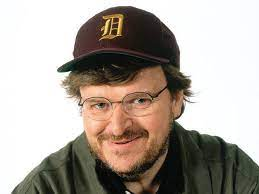Backwards Approach
I have already done most of the filming for the documentary because my process has been kind of backward because of my circumstances. Usually, the first week would be used for research and planning for the project, but I took the time to film my B-roll during the first week. The good thing is... now I finally get to get more research done!
Today I will be focusing more on tips on how to make a documentary good, overall. In order to gain the tips, I've done some research online, and have found some articles that that been able to help me!
Ken Burns
The first article that gave me a lot of tips on how to make a good documentary is entitled "Filmmaker Ken Burn's Top Tips for Documentary Cinematography" documentary.
There are 6 main types of documentary genres, each of which has different techniques that go with the. By identifying the genre, it is easier to follow the right techniques. My documentary would be considered either an expository or observational documentary. I am not sure what type it is yet don't because I don't really know what to focus my documentary on... I know what to do with the broad idea of theater tech, but I don't know specifically what I want to showcase. This is why I don't know what type it is going to be. It might be biased, like an expository documentary, or completely untouched, like an observation documentary observation.
The first tip is to use a visual style. This means that there needs to be a consistent style that is used throughout the piece.
The second tip is to engage the audience with the types of shots that are used. I have tried to get some close-ups to make the audience really feel close to the tech crew and aspects of theater tech. I have especially tried my best to do this definitely trying to capture the emotion of the tech crew, by getting close-ups of what they were doing. When I do a film from the workshop, I will definitely take this into more consideration, and try to keep the audience engaged with all the shots that I take. One way I will do this is by having handheld shots, to make them more point-of-view-esque, to make the audience really feel like they are in the workshop.
The third tip is to use live cinematography instead of archival footage. This is something I will definitely be doing since I shot all the footage in the present time, and don't need to use any footage from the past.
The last tip is to light your interviews properly. When I do get to this part of the stage, I will definitely be achieving this by using my ring light. My best interviews for my last documentary were accomplished by using this light. I also learned that it is much better to film interviews inside rather than outside since the outside weather cannot effect the noise when you are inside!
Michael Moore
The second article that also gave a lot of handy tips was "Micheal Moore's 13 rules for making documentary films."
First, he starts out by saying "don't make a documentary- make a MOVIE." People do not want to watch documentaries in order to be lectured about something. They watch them to be entertained! This means that in order to make a good documentary, they must be entertaining! He says that laughter is the best way to get a message across. It helps to grasp hard issues better since they are able to laugh through the documentaries and keep being entertained. He says that rather than getting the message of a documentary across, filmmakers should focus on the art of cinema. And letting people enjoy watching the cinema.
The second tip is "Don't tell me shit I already know." He says haven't things documentaries that documentary should provide new information that is not already known. He wants documentarians to find a new perspective to the start people have not seen before, causing them to start thinking of things from a new perspective. In relation to the audience, "take them someplace they haven't things been. show them something they've never seen." When people see things that they've haven't already seen, they are numb to it. this is why I have to present something that they've never really seen before.
He also says that it's important to make a film personal. This doesn't always mean directly putting yourself in front of a camera though. People want to see a documentary with the sound of a personal voice. I need to find someone that truly loves teaching theater in order to have a genuine perspective on it
He says that you should film people that disagree with you, when possible. I don't know if this is possible in this case since it might be found to find someone that disagrees that theater tech is important, but it would add an interesting outside perspective to the documentary. If anything, I could interview a random person about what they know about the backstage element of theater, to show that it is an underappreciated art. Maybe! I could even start out with this, to show how little people know about the behind-the-scenes of theater. Then I could transfer t what they actually do in order important to show how important it is. I know I wanted to include a little kid in my documentary. Maybe this is where they could be included!
[Michael Moore]
Hopefully, later on in the process, I will be able to check out some of the films made by ken burns and Michael Moore. I am especially interested in Michael Moore's style of making documentaries. and hope to check out one of his soon!






No comments:
Post a Comment